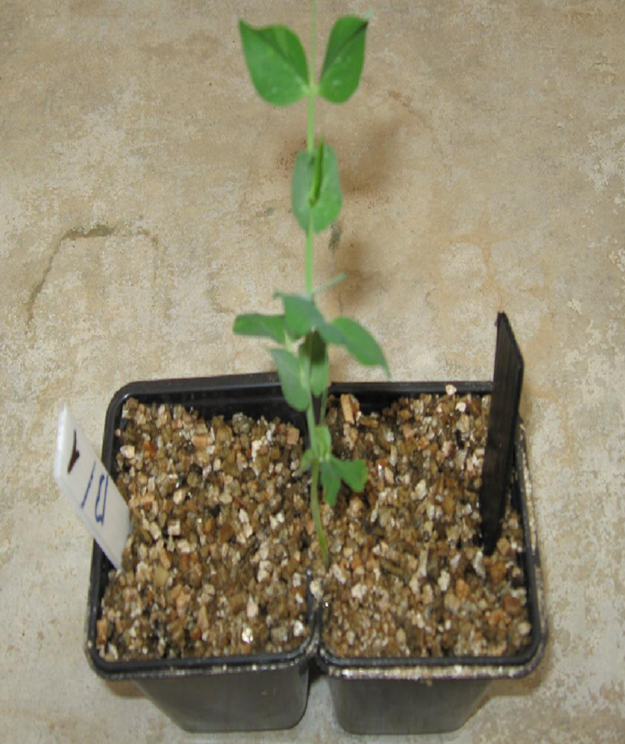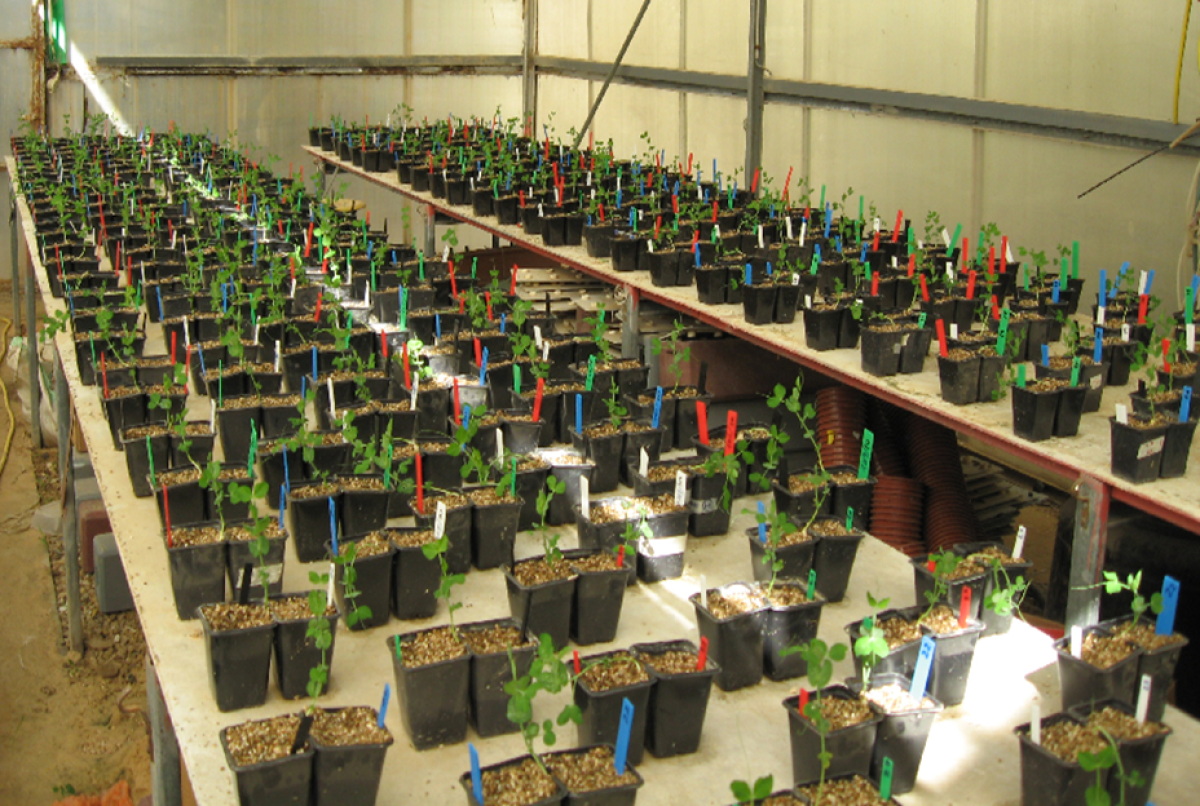
Let's say you have a pretty good job. You earn a decent amount of money, enough to pay your bills. It's a stable gig, not great, but good enough. Then an opportunity at a startup comes along. But it's risky. It could pay off big, but it could also massively fail and then you'd become unemployed.
What to do? Most people would stay put. But let's pretend your stable job isn't enough to pay the bills. In that case, it makes more sense to take the riskier option.
Scientists have studied these kinds of decisions and developed rules that most people seem to follow, an area of research known as risk sensitivity theory. This field also applies to animals (they usually take the riskier of two choices only if they lack the necessary resources).

But new research shows that plants are also capable of gauging risk and "gambling" in a way that improves their chances of survival. In a study published online June 30 in the journal Current Biology, scientists grew pea plants in such a way that their roots reach down into two separates pots. In one pot, the level of nutrients was kept constant. In the other, the amount of nutrients varied.
When the level of resources in the "stable" soil was enough, the plant grew most of its roots in that pot. But when the "stable" levels were low, most of the root growth occurred in the varying, "riskier" pot.
"When you have surplus resources, you shouldn't take risks," says the study's lead author, Hagai Shemesh, a plant ecologist at Tel-Hai College in Israel. "But if you're on edge of survival, you might as well take risks. Nobody ever tried to challenge plants in such a situation, and this is what we did. And surprisingly, the plants behaved exactly as the theory predicts."
It appears that plants can also plan for the future, Shemesh says. Not only can they detect the level of nutrients, but they can also figure out the rate of change, and "develop more roots in areas where it's improving." It's the plant equivalent of buying a low but rising stock, he says.
The finding "suggests maybe you don't need to have a fancy brain to behave strategically," Shemesh adds.
Exactly how the plants make such "decisions" is unknown, since they don't have a nervous system or brain. This is yet another piece of information that shows plants are much smarter than we give them credit for. Previous studies have shown that they can learn, remember, recognize their kin and communicate in extremely complex ways.
But even with all these new findings, Shemesh says, "I'm sure we're still underestimating them."
Uncommon Knowledge
Newsweek is committed to challenging conventional wisdom and finding connections in the search for common ground.
Newsweek is committed to challenging conventional wisdom and finding connections in the search for common ground.
About the writer
Douglas Main is a journalist who lives in New York City and whose writing has appeared in the New York ... Read more
To read how Newsweek uses AI as a newsroom tool, Click here.








